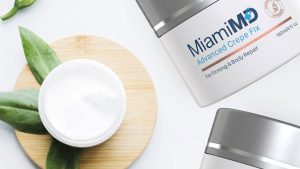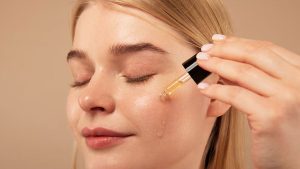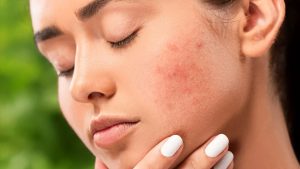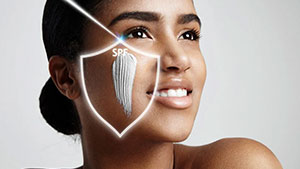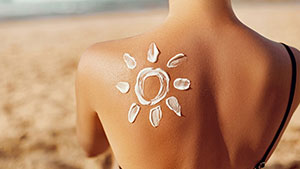What Does It Mean To Be Paraben Free?
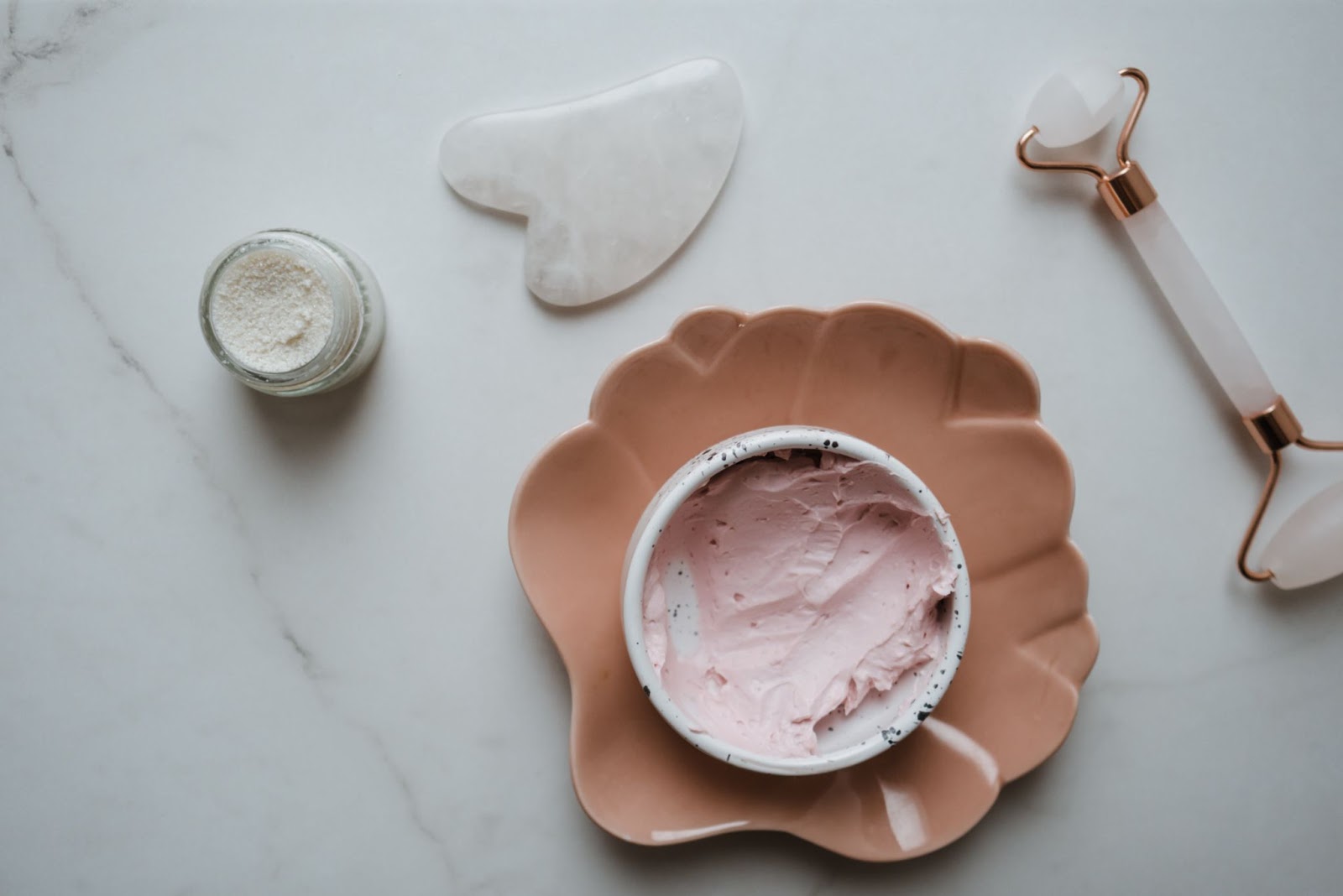
With more consumers than ever focusing on the ingredients of their products and wanting to protect themselves from harmful health effects, an increasing number of companies are designing their products to remove ingredients that were once common, like parabens. These days, it’s not uncommon these days to run across products that are labeled “paraben-free” in the personal care or beauty sections of your favorite stores, but what does paraben-free mean, and why does it matter?
What Does Paraben-Free Mean?
Products that are labeled “paraben-free” do not contain parabens. That much is obvious, but what exactly are parabens? Parabens are the most common type of preservative used in personal care products and cosmetics, including everyday products like soap, moisturizers, deodorant, shaving cream, shampoo, and more. There are many different types of parabens, but the most common include methylparaben, propylparaben, and butylparaben. Parabens are all compounds that are formed from acid and alcohol, specifically, p-hydroxybenzoic acid.
Parabens are used as chemical preservatives that help extend the shelf life of beauty products by preventing fungus and mold growth. They have been used since the 1920s as a common ingredient in many different types of personal care products, including bathing products, skincare products, cosmetics, and more. Products with high water content, including shampoos, conditioners, and body washes, are more likely to contain parabens.
Over the past two decades, there has been growing concern about the effects of long-term exposure to parabens and the potential dangers of these chemicals. While almost every beauty product contains some type of preservative to help extend the product’s shelf life, parabens may cause harmful effects with long-term use.
As a result, some beauty companies have begun producing paraben-free products to minimize potential health risks. The term “paraben-free” denotes products that do not contain parabens and may be less likely to cause these effects.
Why Are Parabens Harmful?
There are several causes for concern when it comes to the effects of parabens on your health. Unfortunately, despite numerous studies suggesting the potentially harmful effects of parabens on your health, the U.S. Food and Drug Administration (FDA) currently does not place any regulations or restrictions on parabens.
As a result, cosmetics are not tested or approved by the FDA prior to being placed on the market. Additionally, there are no regulations surrounding the majority of ingredients in cosmetic formulas despite the potential risks. When it comes to parabens, the three primary areas of concern include reproductive disruption and skin irritation.
Reproductive Disruption
Parabens are endocrine disruptors that can mimic the action of the human hormone estrogen, which is present in both men and women. As a result, parabens can influence the balance of hormones in your body in a way that may contribute to reproductive disruption and infertility. Studies have shown that parabens mimic the action of estrogen so closely that they can interfere with how hormones in the body are regulated.
When parabens disrupt the normal function of your body’s hormones, many different aspects of male and female reproduction can be affected, including female reproductive system functioning, reproductive development, fertility, and even birth outcomes. The body becomes confused by the presence of parabens and can also fail to produce an adequate supply of hormones due to high levels of parabens in the body.
Parabens as a group have been labeled by the U.N. Environment Programme as endocrine-disrupting chemicals, with propyl- and butylparaben specifically labeled as endocrine-disrupting chemicals or potential endocrine-disrupting chemicals. While there are concerns about parabens as a group, propylparaben and butylparaben are considered the most concerning of this group of chemicals due to how they interact with hormones in the body.
Both human and animal studies demonstrate the effects of parabens on the hormones of the body. Animal studies conducted in rats have demonstrated that propyl-, isopropyl- and isobutyl parabens disrupt hormone signals. Over time, exposure to these parabens was found to harm female reproductive development. While parabens mimic the action of estrogen, men may also be at risk of disrupted hormone function and fertility issues.
A 2014 study conducted in rats found that exposure to parabens during development contributed to decreased sperm production and lower testosterone levels overall in male rats. Even low doses of exposure to parabens were found to cause a reduction in sperm count.
Human studies have found that infertility is linked to higher levels of parabens in the urine, which indicates paraben exposure. In addition, the way that parabens disrupt female hormones can also contribute to decreased menstrual cycle length, which may also correlate to reduced fertility.
Another human study indicated the possible effects of paraben exposure on birth outcomes. Parabens not only have the potential to interrupt fertility, but they may also have the potential to contribute to higher odds of premature birth and low birth weight. For example, a study conducted in 2017 found that elevated levels of butylparaben in the mother’s urine and the umbilical cord blood were associated with an increased risk of premature birth and low birth weight.
Skin Irritation
Based on our understanding of how parabens can disrupt the body’s hormone balance, it is not surprising that parabens have since been linked to an increased risk of different types of skin irritations that are influenced by hormones. Environmental estrogens like parabens can be easily absorbed into the skin. Using beauty products containing parabens regularly can cause the levels of parabens in your system to build up.
One of the most easily noticed effects of beauty products containing parabens is the skin irritation some people experience when using these products. Parabens can cause an allergic reaction in some people, while others may experience a gradual increase in skin irritation over time.
Even if you are able to use products containing parabens with no skin reaction for a period of time, your skin’s sensitivity to the compounds can increase with increased exposure. Signs of skin irritation commonly associated with parabens include redness, itchy skin, hives, irritation, and flaking.
What Products Commonly Contain Parabens?
Parabens are commonly found in many kinds of beauty and personal care products, including:
- Moisturizing face and body creams
- Tinted moisturizer
- Sunscreen
- Liquid and powder foundations
- Deodorant
- Cream and powder blush
- Shampoo
- Conditioner
- Body wash
- Leave-in conditioner
- Lipstick
- Shaving cream
- Lip balm
- Petroleum jelly
- Eyeshadow
- Eye creams
While any product containing parabens may potentially cause harmful health effects, the products placed on thin or sensitive skin, such as eye creams and facial moisturizers, may be more likely to be absorbed into the skin at higher levels and can contribute to more pronounced effects.
How Can You Tell If A Product Is Paraben-Free?
In order to tell if a product is paraben-free, check the label. A paraben-free product will state that it is “free from parabens” or “0% parabens” as a part of its packaging. To double-check, look at the ingredients list on the back and check for terms like methylparaben, propylparaben, isopropyl paraben, isobutylparaben, and butylparaben are among the most common paraben ingredients. The word “parahydroxybenzoate” is a synonym for parabens.
Fortunately, going paraben-free doesn’t have to mean giving up on high-quality beauty products that look and feel great. On the contrary, a growing number of brands are increasingly prioritizing the health of their consumers by creating paraben-free beauty products. These days, you can find high-quality eye creams and serums, facial moisturizers, and much more that are free of parabens.
Summary
Paraben-free products are produced without parabens, a chemical compound that has been shown to contribute to hormone disruption, reproductive disruption, skin irritation, and human and animal studies. To minimize your exposure to parabens and lower your risk of experiencing these issues, consumers can shop for paraben-free beauty products.
Sources:
What Are Parabens, and Why Don’t They Belong in Cosmetics? | EWG.org
Interference of Paraben Compounds with Estrogen Metabolism | NCBI
Endocrine Disrupting Chemicals (EDCs) | Wedoc.org
https://www.sciencedirect.com/science/article/abs/pii/S0039128X11001048
Effects of n-butylparaben on Steroidogenesis and Spermatogenesis | NCBI
Urinary Paraben Concentrations and Ovarian Aging among Women from a Fertility Center | NCBI
Birth Outcomes with Fetal Exposure to Parabens | NCBI
Interference of Paraben Compounds with Estrogen Metabolism | NCBI
